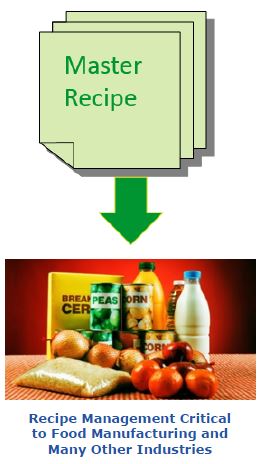

Process manufacturing utilizes chemical, physical and compositional changes to convert raw material or feedstock into a product. Process manufacturing includes industries such as cement and glass, chemicals, electric power generation, food and beverage, life sciences, metals and mining, oil and gas, pulp and paper, refining, and water and wastewater. Process manufacturing includes both continuous and batch processes.
Industries such as life sciences, metals and mining, fine chemicals, and others include a mixture of continuous, batch or sequential and discrete processes that are frequently referred to as “hybrid” industries and applications. Continuous process manufacturing includes industries such as refining, chemical, petrochemical, and oil and gas applications and are unique in several ways:

Typically operate 24X7X365 with long periods between shutdowns or turnarounds, with a high-volume and low-cost focus. A typical refinery, for example, may shut down once every 5-7 years, and the industry trend is toward even longer times between shutdowns.
Continuous process industries tend to make maximum profit at the point in the business cycle where capacity is limited, so capacity utilization is most important.
Manufacturing assets usually represent 75 per-cent of the process company’s entire assets. This is extremely high compared to many other industries.
Manufacturing usually represents more than 65 percent of the cost of sales.
Most plants operate at less than Four Sigma performance, with unscheduled slowdowns or shutdowns persistently the largest threat, particularly in the heavy industries. ARC estimates that the cost of unscheduled shutdowns is equiva-lent to about 5 percent of the total output of all the process industries and costs end users billions of dollars annually.
Light process manufacturing, primarily batch processes, are also unique in several ways:
Manufacturing is often shift-oriented, and tends to have a low-volume/high-value focus.
Hybrid industries tend to make maximum profit by responding quickly to demand swings with minimum quality variability.
Performance is measured in terms of effective manufacturing in rapid response to market demand. This is also true for continuous industries.
Hybrid industries such as life sciences and food & beverage have a host of regulatory concerns that are not shared with con-tinuous process industries such as oil and gas and refining.

